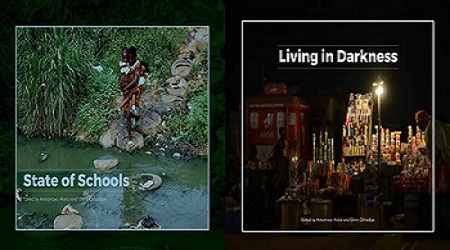By Oluwatomisin Amokeoja
The Wole Soyinka Centre for Investigative Journalism (WSCIJ) has released two photo books on the challenges with basic education and electricity in Nigeria.
In a statement signed by the Executive Director/CEO, Mrs Motunrayo Alaka, the photo books titled, State of Schools and Living in Darkness, is part of WSCIJ’s Regulatory Monitoring Programme (REMOP).
The books include pictures from reports published under the REMOP project during its first three years from 2017 to 2019.
According to the statement, “lack of infrastructure, poor environment and sanitation, congestion and ‘working children’ are some themes covered in the ‘State of Schools’.
“It interrogates the difficulties children, teachers, communities and other stakeholders face. Its electricity version, ‘Living in Darkness’, covers safety hazards and infrastructural decay in the electricity sector among other issues.
“Electricity and basic education are interconnected and pertinent to Nigeria’s development. The photobooks reiterate the need for an integrated development approach by all stakeholders in tackling the challenges.”
The books were edited by Alaska and Gbile Oshadipe, Director of Picture Perfect and a photojournalism expert.
READ ALSO: Wole Soyinka Centre launches COVID-19 Reality Check’ project
19 journalists worked across different news media organisations and states to contribute to the collection of pictures.
WSCIJ conceived REMOP as a media initiative geared at following and reporting the activities of government regulatory bodies to promote proactive disclosure of information, transparency and accountability.
It has trained 93 journalists and published 55 individual investigative reports.
In 2019, it facilitated a “first-of-its-kind” collaborative journalism effort with eight reporters and three editors from Premium Times, TheCable, Daily Trust and the International Centre For Investigative Reporting (ICIR) to publish six investigative reports focused on why Nigeria does not have stable electricity.
Other activities such as lectures, campus outreaches and internship, stakeholders’ meetings and social media campaigns were undertaken and led to impact in the sectors.
WSCIJ and its partners are hoping that the projects will get the attention of the federal government, state governors and other stakeholders to use the school closure window caused by the covid19 pandemic to improve the state of schools and attend to the darkness in the electric power supply sector that is stifling the development of the country.


